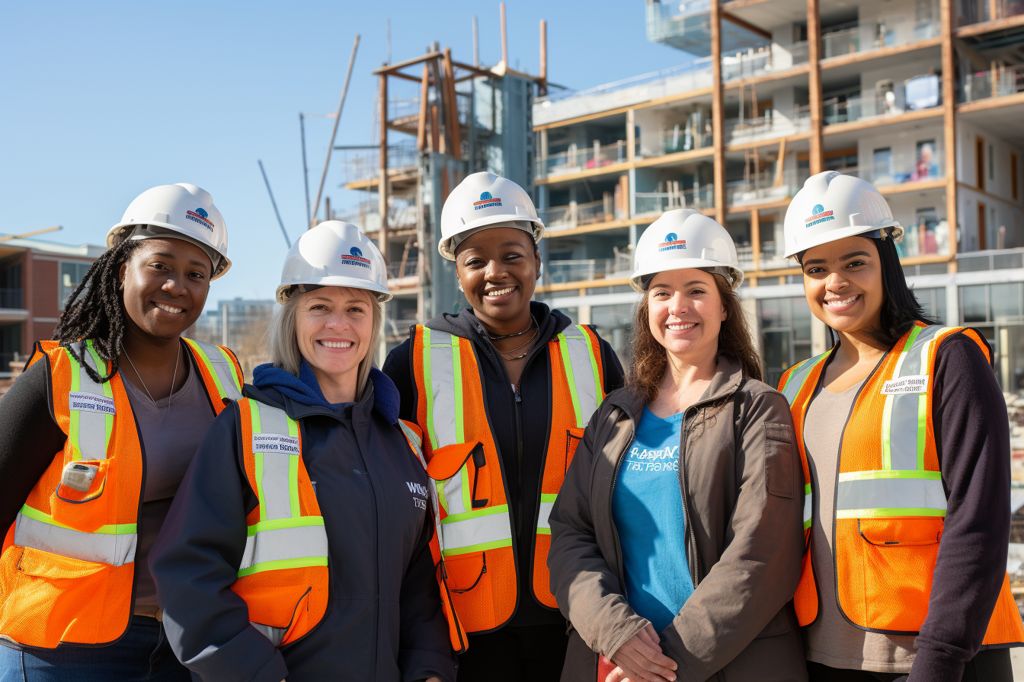South Africa’s Deputy President, Paul Mashatile, recently addressed a meeting of the Human Resource Development Council, highlighting the country’s commitment to investing in skill development and creating a globally competitive society. The meeting was attended by important figures dedicated to enhancing the country’s human resources, including Dr. Zamani Saul, Premier of the Northern Cape Province, Professor Andrew Crouch, Vice-Chancellor and Principal of Sol Plaatje University, and Dr. Blade Nzimande, Minister of Higher Education, Science, and Innovation.
Building Academic Cities to Promote Skills Development
The meeting discussed the concept of creating academic cities or precincts across the country, which could significantly contribute to the growth of a skilled nation capable of addressing challenges posed by a rapidly evolving global economy. Sol Plaatje University, one of the two universities established after 1994, hosted the meeting, indicating the government’s long-term commitment to fostering a skills revolution.
Innovative Programs for Meeting Current and Future Needs
The province successfully launched its provincial Human Resource Council earlier this week. Innovative programs offered by Sol Plaatje University, the Northern Cape Rural TVET College, and the Northern Cape Urban TVET College have provided courses in construction, bricklaying, solar energy, data science, and water solutions that meet current and future community needs.
Prioritizing Human Resource Development
The Human Resource Development Strategy Towards 2030 identifies five priority areas that require accelerated implementation to achieve a skilled and globally competitive society. These priority areas are:
- Foundation education covering science, technology, engineering, mathematics, language, and life orientation skills
- Technical and Vocational Education and Training (TVET) and the rest of the college system
- Higher education and training, research, innovation, and development
- Skills for a transformed society and economy, using the workplace as a platform
- Developmental/capable state
Importance of Quality Primary Education
Quality primary education, emphasizing mathematics and science, is crucial for economic development, higher education, research, and innovation. South Africa’s performance in these areas directly impacts the country’s economic prospects based on the correlation between patents, trademarks, industrial designs, and the quality of the education system.
Addressing Strategic Areas for Attention
The World Intellectual Property Organization (WIPO) reported that South Africa registered only 542 patent applications in 2021, a figure that lacks behind countries such as China, the United States, and Japan. The United Nations Development Program (UNDP) for 2022 identified five strategic areas that require attention and focus, requiring urgent attention from the Human Resource Development Council of South Africa (HRDC).
Potential of Northern Cape Province
The Northern Cape Province, enriched with minerals such as diamonds, manganese, iron ore, lithium, and other resources, has the potential to become a leader in careers such as chemistry, heavy equipment operating, environmental consulting, mine surveying, geology, and specialized engineering fields. Additionally, the province’s unique attributes present it as a potential leader in solar energy.
Pooling Resources for Skills Capacity Challenges
To eradicate poverty for more than a billion Africans, South Africa must partner with the Southern African Development Community (SADC) region and the continent to address common challenges in skills capacity on a continuous and sustainable basis.
In conclusion, developing human resources in South Africa is vital for creating a skilled and globally competitive society. Investing in education, innovation, and addressing priority areas will enable the nation to work towards a brighter and more inclusive future for all its citizens.








